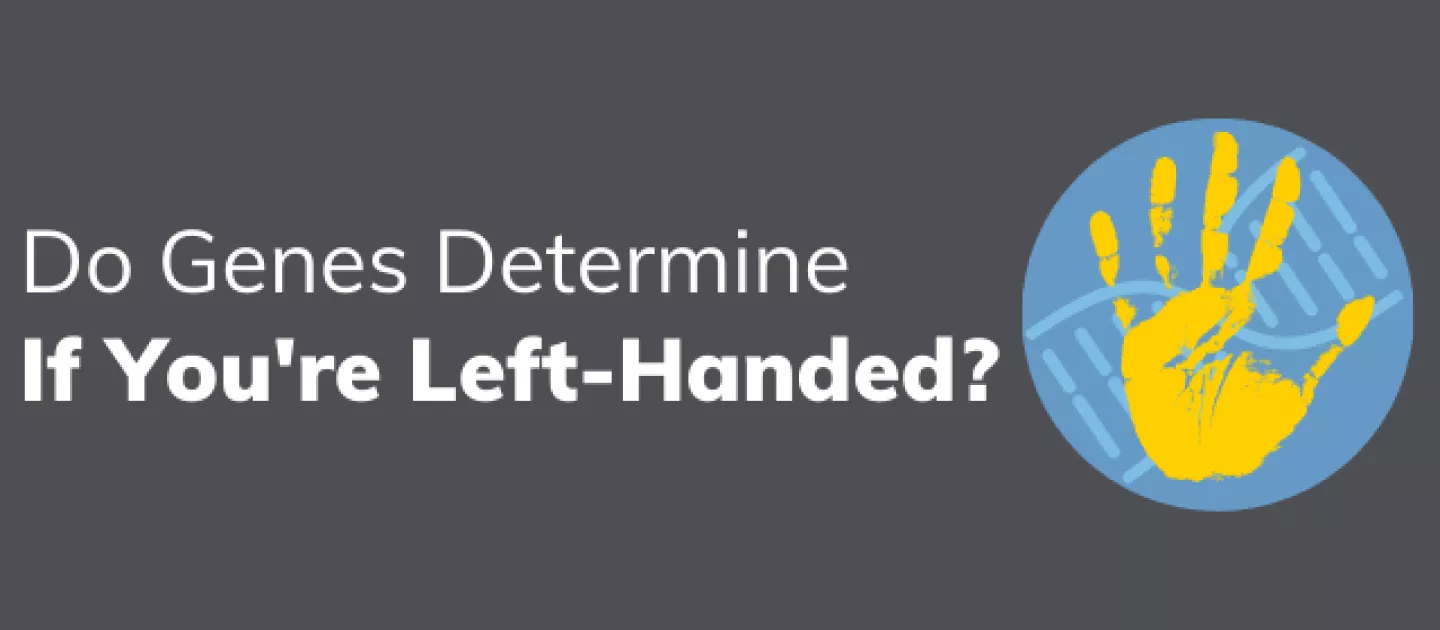Every day we use our hands to do things, from writing, using utensils to cook and eat, brushing our teeth, waving hello, and more. Have you noticed that when we do these things that we don’t stop to think about which hand we use? It comes naturally.
The scientific term for which hand we prefer to use for tasks is known as handedness. It also helps answer the simple question ‘are you a lefty or a righty?’ If you’re looking for a quality that that makes you unique, only 10-15% of people are left-handed.
If you wonder why you are left-handed, scientists have an answer, and some if it is related to your genes.
Genetic Differences Associated with Left-Handedness
A 2019 study published in BRAIN has helped identify the first genetic markers linked to being left-handed. Through comparing the DNA of 400,000 individuals from the UK (of which 38,322 which were left-handed), scientists found four genetic markers related to people who use their left hand.
Some of the genes in which the genetic markers were found help determine the body’s right-left asymmetry. Asymmetry is the process that differentiates the left and right side of the body. The right side of the brain controls movement on the left side of the body and vice versa.
The findings from this study are interesting considering that scientists thought for a while that handedness was only determined by a single gene. Now they know that there is more than one gene responsible for this trait. Some research suggests that there could be up to 40 genes that determine if you’re a lefty or a righty. Although genes do play a role in handedness, it’s a complex trait that does not have a straightforward pattern of inheritance. Other factors contribute to hand preference as well.
Additional Influences on Handedness
Even if you have the genetic markers associated with left-handedness, it doesn’t necessarily mean you’re destined to be a lefty. Genes play a 25% role in determining one’s hand preference, which means that the rest is influenced by something else - the environment.
Some scientists believe that environmental factors, such as year and location of birth, affect the probability of being left-handed, and they believe this is likely due to cultural effects. Historically, those who defaulted to using their left hands were forced to use their right hands instead, as right-handedness was the norm and people were resistant to variation. Some cultures might even consider a left-handed writer to be unlucky or clumsy. The rate of forced right-handedness has decreased over time, though, as society has adapted to left-handedness.
Regardless of how much of a role the environment can affect if you’re right or left-handed, it’s still neat that scientists have been able to pinpoint the first genetic markers that influence it as well. The study also determined that the genetic markers associated with left-handedness were also related to another finding that give people who use their left-hand a benefit over their right-handed counterparts.
Additional Study Findings
Brain images from 10,000 of the people studied showed differences in white matter tracts in the brain. The significance of these findings is that these tracts are connected to the language-related regions of the brain. This means that the communication between the left and right sides of the brain are more in sync in left-handed in individuals, allowing them to perform verbal tasks better than right-handed individuals.
The exciting findings from this study bring us one step closer to better understanding who we are and why we function the way we do because of our genes. While there is still a lot more research to be done on genes and handedness, it gives us a good peek at what helps to determine it.
Follow us on Facebook, Twitter, and Instagram to join the conversation and stay up-to-date on cord blood & tissue, genetics, pregnancy, and everything in between!
Disclaimer: PerkinElmer and ViaCord do not endorse or make recommendations with respect to research, medications, or treatment. All information is provided for informational purposes only.
Resources:
MedlinePlus. Is handedness determined by genetics? https://medlineplus.gov/genetics/understanding/traits/handedness/
BRAIN. Handedness, language areas and neuropsychiatric diseases: insights from brain imaging and genetics. https://academic.oup.com/brain/article/142/10/2938/5556832
Live Science. 1st Genetic Markers Tied to Being Left-Handed Found https://www.livescience.com/left-handed-genes.html
Nature. A large-scale population study of early life factors influencing left-handedness https://www.ncbi.nlm.nih.gov/pmc/articles/PMC6345846/pdf/41598_2018_Article_37423.pdf
NCBI. The molecular genetics of hand preference revisited https://www.ncbi.nlm.nih.gov/pmc/articles/PMC6461639/











